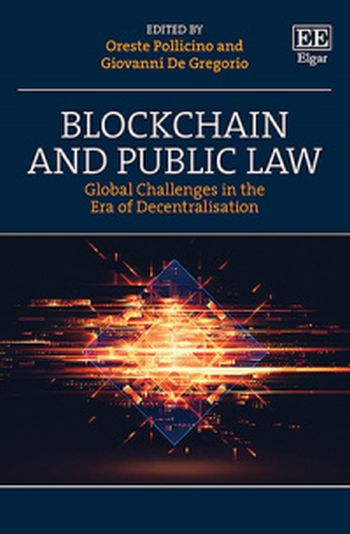
This important and topical book provides a comprehensive overview of the challenges raised by blockchain from the perspective of public law. It considers the ways in which traditional categories of public law such as sovereignty, citizenship and territory are shaped, as well as the impact of blockchain technology on fundamental rights and democratic values.
Articulated in two sections, the first analyses the opportunities and the challenges that blockchain and distributed ledger technologies raise in the field of public and constitutional law, while the second highlights challenges derived from the intersection between blockchain and other legal fields such as contract law, financial law and antitrust law. A wide variety of expert contributions offer further examinations of the constitutional challenges of blockchain technologies that provide regulatory options for governments and lawmakers.
Blockchain and Public Law will be a critical point of reference for scholars and students of legal theory, public policy and governmental law. It will also be beneficial to legal practitioners and lawmakers to further develop their knowledge of the field of blockchain at national and international levels.